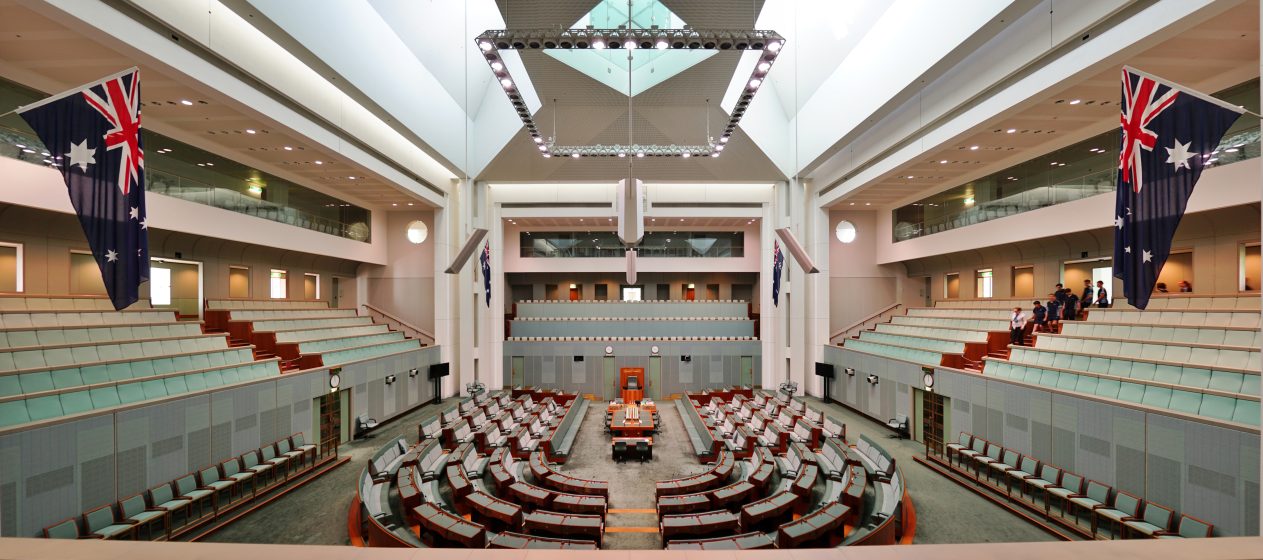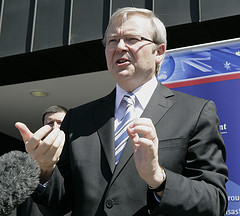This summer it transpired that during the pandemic previous Prime Minister (PM) of Australia, Scott Morrison, had secretly appointed himself as minister to five ministries. By the end of his mandated term in 2022, he enjoyed the statutory powers to manage six of the 14 government ministries, often unbeknownst to the already appointed ministers and the public. What makes this an especially untoward governance strategy, is that the Morrison government was a coalition government. More precisely, Morrison’s party, the Liberal party, shared government office with the National party. Two of the five ministries Morrison appointed himself to, were originally assigned to the National party. He seemingly did so for the sole purpose of influencing their governance decisions.
The report of the resulting inquiry by former Australian High Court judge Virginia Bell was released on Friday the 25th of November and provides precise details of this unusual prime-ministerial strategy. The report predominantly considers the legality of these actions, and does not explain what motivated such behaviour, and more importantly, why the junior coalition party tolerated it. Although this occurrence is unprecedented, the literature on coalition government suggests it is common for coalition parties to want to police each other. Moreover, the extent to which coalition parties can object to deviant behaviour from their partners may also be limited. The rest of this article explains these mechanisms in further detail.
Shadow Appointments
The Bell report details how the first and second appointments to the department of health and finance occurred in March 2020, at the early stages of the COVID-19 pandemic. Scott Morrison justified these decisions as introducing an additional check on the extraordinary powers ascribed to these departments during the pandemic. In addition, he stressed that these appointments were to ensure a quick substitute if key ministers were to become incapacitated in a time of great urgency.
However, Morrison did not leave it there. More than a year later, in April and May 2021, he appointed himself as minister of an additional three ministries. These remaining three appointments, Bell considered to have ‘little if any connection to the pandemic.’ Instead, ‘Mr. Morrison was appointed to administer these departments to give himself the capacity to exercise particular statutory powers’ (P.2). Morrison only actively used these powers once to influence ministerial policy. More precisely, he appointed himself as the minister of the Department of Industry, Science, Energy, and Resources (DISER), for the sole purpose of impeding incumbent National Party minister Keith Pitt, on the Petroleum Export Permit 11 (PEP-11) applications.
PEP-11
PEP-11 is the project for petroleum exploration and recovery off the East-coast of Australia. After running for more than 20 years, the project’s license expired on the 12th of February 2021. Minister Pitt and the civil servants from DISER therefore were considering whether to apply for further extension of the license.
Bell highlights how Minister Pitt and PM Morrison disagreed on this matter. Whilst Pitt was considering renewing the application, the PM publicly withdrew support for a further extension during a press conference in March 2021. Mrs. Bell identified a paper trail in the subsequent weeks, where Morrison instructed his civil servants to investigate how he could influence the application. This was then followed by a formal, yet discrete, request on the 12th of April by the PM to be appointed minister of DISER.
During a conversation between Morrison and Pitt on the 21st of April, the PM stated he would make the call on PEP-11 because ‘I’m the Prime Minister and I can be the signatory on that particular decision’ (p.51). The meeting concluded with Pitt agreeing to ‘remain silent on PEP-11’ (p51). From this point onwards, it indeed remained quiet until the 8th of December 2021, when DISER was formally notified of the PM’s appointment. The matter was then settled on the 16th of December, with the publication of a press release formally stating the PEP-11 application would not be renewed.
Ministerial Drift
Scott Morrison’s concern that fellow coalition parties would act in ways inconsistent with his own party’s preferences is not new. In fact, it is a universal coalition problem referred to as ministerial drift. More precisely, when forming a coalition government, all ministries are divided between the parties involved. This means that parties can determine the legislative direction of some policy areas, whilst they relinquish control over others. This means that the ministers of each department have an informational advantage with which they can drift proposed legislation towards their own party preferences, and away from the agreed upon coalition consensus. Coalition literature has nevertheless identified a number of institutional control mechanisms that allow parties to police each other, thereby deterring ministerial drift. For instance, publishing a written coalition agreement holds all parties publicly accountable to the consensus. Alternatively, by appointing junior ministers or legislative committee chairs in each other’s policy areas, parties can specialize in these policy areas, identify when drift occurs, and condemn it accordingly. Moreover, were this not sufficient, ministerial drift can also subsequently be corrected through legislative amendments.
The coalition agreement between the National and Liberal Party is traditionally kept confidential. Moreover, although Australian cabinets do have assistant ministers, these are not congruent with main cabinet positions, and as such do not allow specialization in each other’s policy areas. So whilst there is an established legislative committee system with significant government oversight power, this does suggest that institutionally Australian coalition parties do not have extensive means to police each other. As a result, ministerial drift is likely to prevail to some degree. This may explain why Morrison was motivated to go ahead with a less conventional form of control. This does not cover, however, why Pitt was so willing to cease control of the PEP-11 decision, or why the National party remained in government after they learned of this development.
National Party Strategy
The decision to maintain coalition membership is the result of a careful weigh-off between the benefits of incumbency against a party’s options were they leave the current government. For the National party, if they did depart, they could either renegotiate the coalition with the Liberal party, consider a different coalition configuration altogether, or accept a place in the opposition. Neither of these options were particularly attractive at the time. More precisely, in the summer of 2021, public support for the National-Liberal coalition was very low, which meant that dissolving the incumbent coalition inevitably would have resulted in a Labour victory. Even if Labour did not receive a majority in parliament, they would not join in a coalition with the National party on ideological grounds. This meant that although the benefits of incumbency for the Nationals had decreased due to Morrison’s appointments, it was still more favourable to maintain the government than to opt for one of its outside options. As a result, it is not surprising Minister Pitt acquiesced to the PM’s wishes, even though it was not the optimal result for him personally.
This indicates the shadow appointments of Scott Morrison were a coalition control mechanism. According to Mrs. Bell the appointments were solely ‘to give Mr. Morrison the capacity to exercise particular statutory power should the minister charged with responsibility for the exercise of that power propose to do so in a manner with which Mr. Morrison disagreed or fail to make a decision that Mr. Morrison wanted to be made’ (P.5). In the case of PEP-11 control was indeed effectively exerted, and the junior coalition partner was coerced into changing their preferred policy. Nevertheless, as a result of this inquiry, it will be unlikely this mechanism will be used in any future Australian coalition governments.




